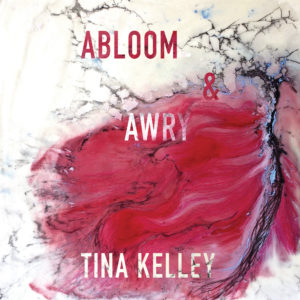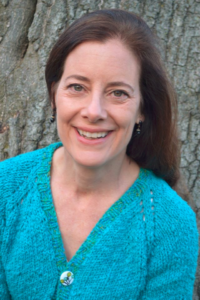
 Review by Sarah W. Bartlett
Review by Sarah W. Bartlett
It becomes quickly apparent that Tina Kelley is quite at home as parent, journalist, and poet. Her themes are as familiar as family, thorny as politics, clever as language, and as varied as the many sources from which she draws inspiration. Her years reporting for the New York Times (where she shared in a Pulitzer for 9/11 coverage) honed her taste for delving into the heart of things, directly and deeply. That she has also won awards for her poetry is not surprising.
Her observations of everything from the daily to the spiritual weave together and resonate in the reader’s heart. In a 2009 Best American Poetry interview she was quoted as saying, “I have a weakness for litanies, for the sound of ten thousand Walt Whitmans intertwining and yawping.” . Well, then. One woman’s weakness is another’s delight.
I admire poets who see the same world I do in wildly different terms—by their associations, style, voice, use of image and line. Kelley is no exception. From the organization of the collection into sections that suggest music (PRELUDE and FINALE) to the themes themselves, these poems “intertwine and yawp” along at a breathtaking pace. Warning: DO NOT TRY TO READ IN ONE SITTING. Kelley’s language and imagery are dense, thought-provoking; they demand your full attention. They beg to be read through more than once. They deserve your reflective responsiveness to being led.
Her opening poem, “The Possible Utility of Poets” charms me from the humility of its title through its epigraph to its enchanting use of language:
… I propose new definitions
of prayer: Beachcombing. Birding. Biking to work.
… the best disciples memorialize
small differences, rare views into words …
So I will craft an amulet, a silver exclamation mark
… connected by adamant
reverence, for all of us to wear and to hold, always. (xvii-xviii)
Her varied inspiration, and resulting title, are memorable. “Expose for the Flames” is advice given a NYT photographer when shooting a space shuttle takeoff; and becomes the taking off point for her own musing: “Will I see / what does not / flame out? / Will I love / what isn’t / first-ever?” (23).
As a grandmother inspired by every charming line uttered by my firstborn grandson, I am doubly moved by her responses to her own children; and the juxtaposition of birth/death/aging that appears in some of her poems. To me, this intersection of the “found” with the daily is nowhere more delightful and disarming than in “Still Life with Ice Sculpture and Candles”:
…
You opened the fungal cream box
read aloud the possible adverse reactions:
shortness of breath, fever, joint pain, fainting
swelling of face, hives, weight gain, severe headache,
menstrual irregularities, fast pulse, nausea, intestinal ulcers,
vertigo, difficulty falling asleep. abnormal hair growth, glaucoma,
vomiting,
death.
It sounds, my love, like growing old, … (35-36)
You must read the final stanza on your own; it is just lovely. Including the use of yet another unusual word, an apparent hobby of hers.
In “Liking Drew,” she writes: “When I conceived the second time, I had sure ideas about him, / that he was seeing through me …” The poem is filled with light, and visual images; even with the profound observation “New parents … because they fear breaking the baby / … chip china instead” (43). Humor, wisdom, simple truths.
Perhaps more than anything, the final poem in the collection says it all. In “Charmed,” Kelley asks “Why does anyone have to leave a world so stunning?” Perhaps this single line sums up her extraordinary ability to “let all things, seen and unseen, their notes of gladness blend” as she quotes in the epigraph to that final poem (79).
Kelley uses everything as source material. A master at collaging the found, she uses headlines, news events, her children’s charming questions, her own spiritual understanding to express a deep gratitude, awe and appreciation for what makes the world a place of both joyful wonder and heartbreaking sorrow. This is a collection to be savored, slowly; and more than once. Let its layers unfold around you and hold you.
Abloom and Awry
by Tina Kelley
CavanKerry, 2017, $16.00, [paper]
ISBN# 9781933880617
Sarah Bartlett’s work appears in Adanna, the Aurorean, Minerva Rising, PoemMemoirStory, Mom Egg Review, Ars Medica; anthologies including the award-winning Women on Poetry (McFarland & Co. Inc., 2012); and two poetry chapbooks (Finishing Line Press). Her work celebrates the human spirit across moods and landscapes. She writes with Vermont’s incarcerated women to encourage personal and social change within a supportive community she founded in January 2010 (www.writinginsideVT.com); and co-edited Hear Me, See Me: Incarcerated Women Write (Orbis Books, 2013).
